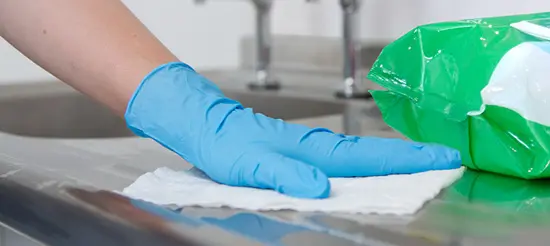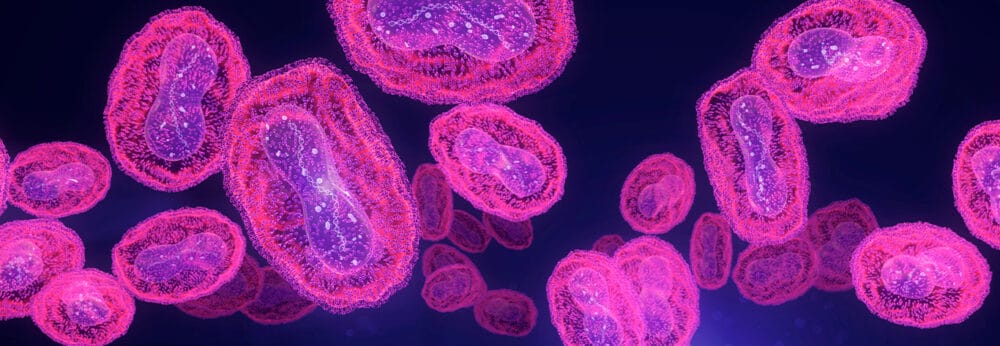Posted
12th June 2017
Products

A Dutch laboratory evaluation of four different disinfectant applied by either spraying or wiping has found that most are effective against key hospital pathogens. However, the hydrogen peroxide spray was ineffective against VRE, suggesting a problem with hydrogen peroxide stability. The study tested the ability of a hydrogen peroxide solution (branded a sporicidal), QAC, alcohol, and glucoprotamin to inactivate clinical isolates of VRE, K. pneumoniae, and A. baumannii. The products were applied as either a spray or wipe following a 1 hour contact time. All disinfectants achieved a >5 log reduction on the organisms tested, with the exception of hydrogen peroxide sprayed onto VRE. Now, hydrogen peroxide is very effective against enterococci, so I suspect that this illustrates a problem with instability of the hydrogen peroxide in the disinfecant formulation. It is also worth noting that the long contact time (1 hour) is not representative of the real world application of these products, where a 1 minute contact time would be more appropriate! This study provides further evidence that QACs (the key active ingredient of Clinell Universal Wipes) can be used to provide stable and effective disinfectant wipes.
SHARE THIS ARTICLE
Tags
Latest News
Celebrating 20 Years of GAMA Healthcare: Our Story
This month, GAMA Healthcare celebrates 20 years of helping prevent…
Norovirus: Understanding its transmission and prevention in the UK
Introduction Norovirus is recognised as the leading cause of viral gastroenteritis…
Clean Between to Reduce Healthcare-Associated Infections
Healthcare-associated infections (HAIs) are a significant concern for healthcare facilities…
Mpox: emergence of a new threat
A new threat related to mpox is emerging, in the…




